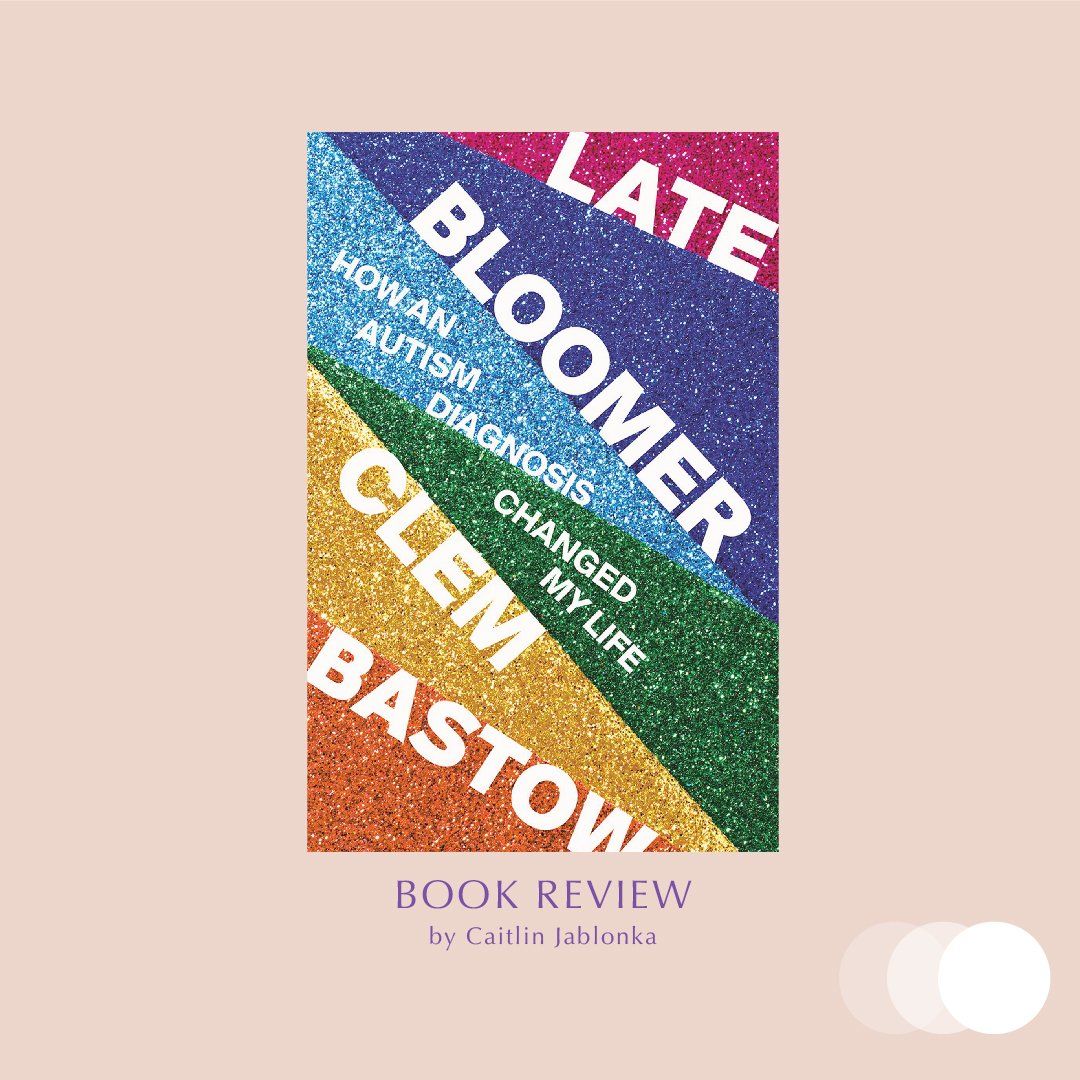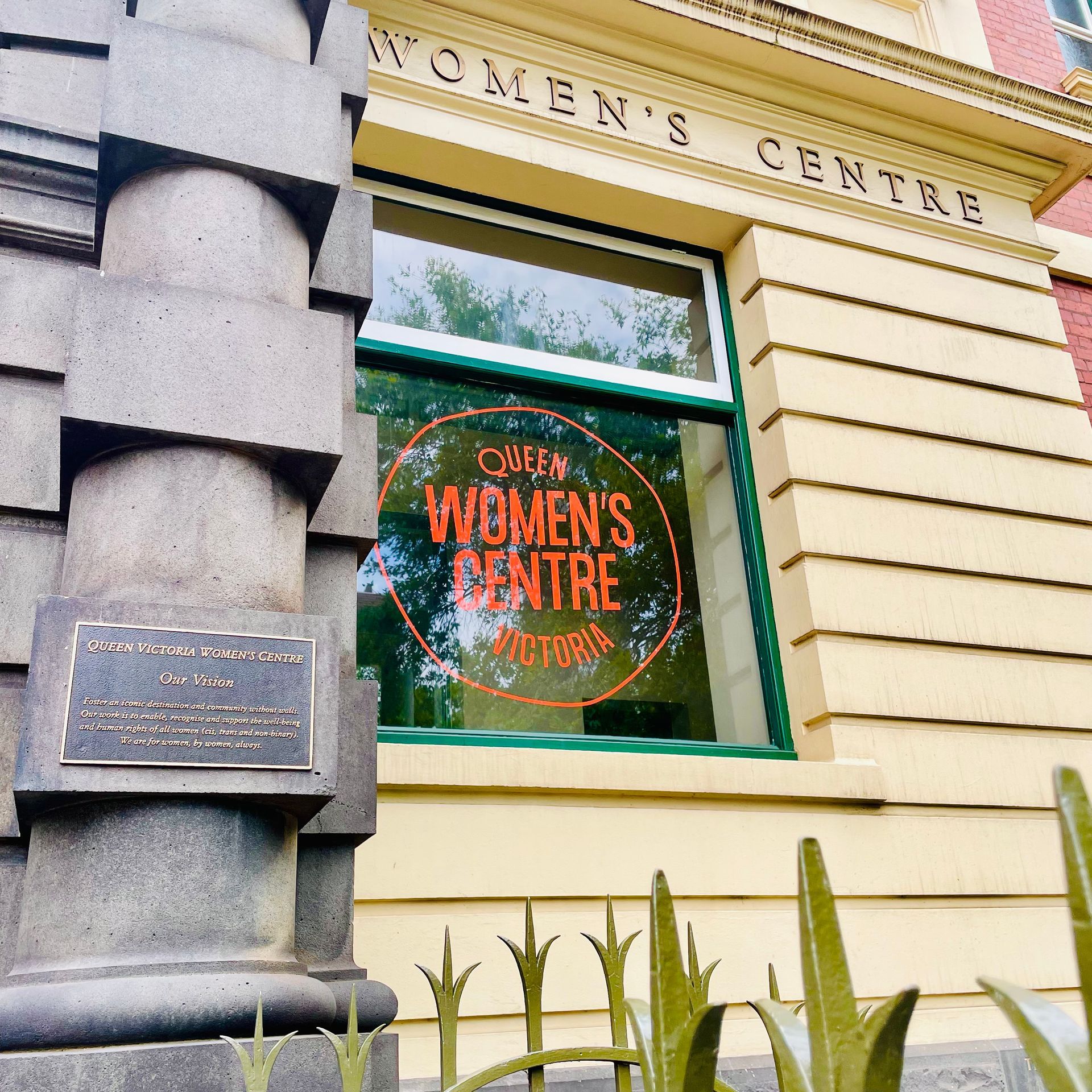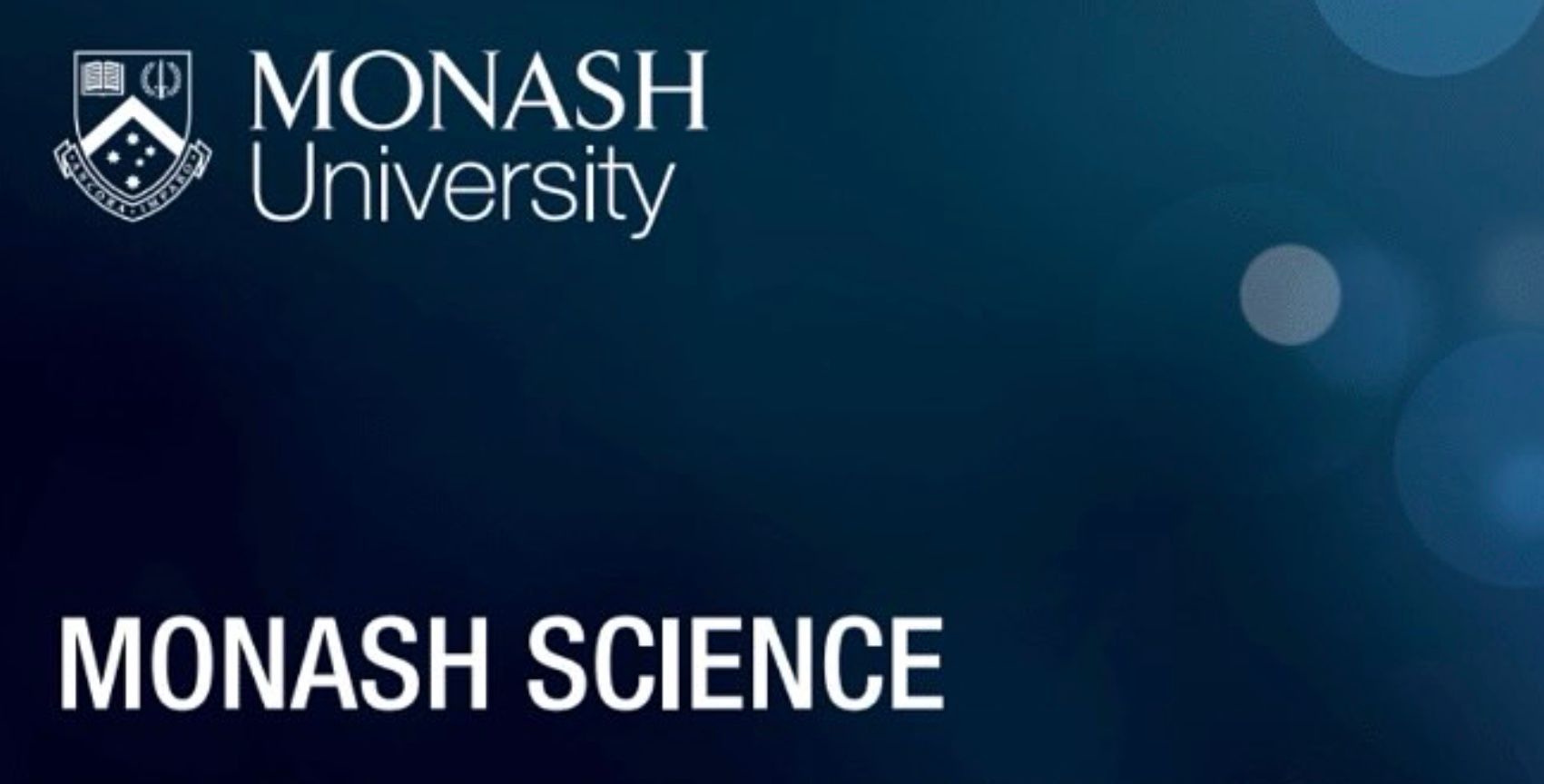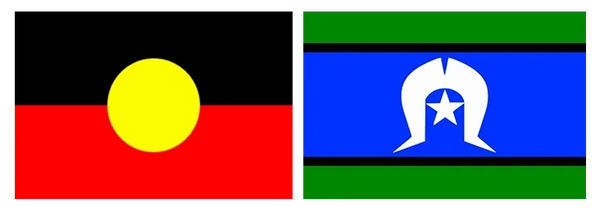Book Review: Late Bloomer - How an Autism Diagnosis Changed My Life by Clem Bastow
Caitlin Jablonka • September 8, 2021

At Melbourne Centre for Women’s Mental Health, we know that Autism often manifests differently in women, girls and gender diverse people, and can go undiagnosed. I knew Late Bloomer would be an important book to review and share within the Centre and its wider community.
I pre-ordered a paperback copy to read (especially because I wanted the sparkly cover for my collection), but when I found out the audio book was read by Bastow herself, I bought and consumed all 8 hrs 57 minutes in a weekend, as I knew from listening to her on the radio that the delivery would be fantastic. And I was not wrong! Bastow injects so much nuance and wry hilarity into the delivery, you can literally imagine little Clemmy (and adult Clem) navigating this weird and wonderful world in her head.
I popped my headphones in, pressed play and listened to the introduction; which made me sit up in my seat on the train, knowing right from the beginning that this book was going to be something illuminating and special.
Late Bloomer begins with an author’s note, in which Bastow steps out her personal choices and reasons for some of the language and grammar used throughout the book. The ‘a’ in Autism is always capitalised to reflect the importance of Autism to Bastow’s identity as well as “recognising that it is not just a ‘condition’, but a community and a culture.” Bastow also uses identity-first language rather than person-first… such as ‘Autistic person’, rather than ‘person with Autism’ and explains with much care and consideration, why people might choose person-first language instead. The author’s note is in-depth but succinct and covers other issues relating to language such as labels like ‘high functioning’, ‘non verbal’, plus neurodivergence as something that encapsulates not just Autism, but other types like ADHD and dyslexia. Right from the offset, Bastow makes the reader feel held and cared for with deep thought, expansive research and deliberate choices.
After the author's note, the opening chapter is a brief life history leading up to how/when/why, at 36 years old, Bastow finally got diagnosed as Autistic. “It’s hard to qualify just how life-changing it is to receive an Autism diagnosis well into adulthood. Suddenly, it was as though I had a road map, translator and code-breaker all in one.”
Late Bloomer mixes Bastow’s personal and often hilarious anecdotes about growing up in a world she didn’t quite seem to fit into, while simultaneously deconstructing the misconceptions and stereotypes that surround Autism.
Bastow carefully takes us through the fevered excitement of her first ‘special’ interest (a “cornerstone of Autism”)... “no five-year-old knows more about dinosaurs than I did”... to trying to navigate schooling, friendships, relationships both emotional and sexual, with other people, as well as these relationships with self. Navigating the confusing world of substance, body, sexuality, and being human. Bastow also explores sensory issues, normalising ASD food habits, Echolalia and Palilalia, Dyscalculia and literal thinking, as well as many other aspects of Autistic life.
It is a deeply personal memoir that covers the highs and crushing lows of existence without feeling the need to shock and awe. Bastow acknowledges hugely painful life moments, with what feels like genuine care and empathy for her readers, obviously self aware that all kinds of people with varying degrees of trauma and life experience will be reading/listening to the words.
Throughout the book there are mentions of studies about Autism, all cited with end-notes, which Bastow states “...is an act of academic accountability, but it is also political: it is a way to demonstrate, however subtly, that the Autistic person is so often viewed as an object, not a subject.”
I personally did not know about the very dark (and patriarchal) history that surrounds Johann Friedrich Karl Asperger, who was the Austrian paediatrician, medical theorist, and medical professor for whom Asperger syndrome is named. Bastow’s research provided me with context as to why people are no longer diagnosed with Aspergers. As well as the citations throughout, there is a reference list at the end of the book for broader context, and for people who are keen to go deeper into the research.
Then of course there is Bastow’s incredibly vast, meticulous and deep love of all things pop culture, woven into the memoir and clearly an intrinsic part of Bastow’s existence as a whole. In the audiobook version, it was brilliant to hear Bastow quote lines from her favourite formative film Ghostbusters, hear her discuss nerding out with Vin Diesel about Dungeons and Dragons or that through Bastow’s time living in LA writing as an Entertainment Journalist …”those forty or so minutes with Kristen Stewart - she liked my hair!! We’re best friends!! - lingered as a sort of talisman.”
Bastow is very clear that Late Bloomer concerns her own experiences and that she can only speak for herself. The care, empathy and intellectual rigour that radiates throughout the book extends right to the end. After the final chapter, Bastow includes an epilogue, where she interviews numerous other Autistic people about their experiences, to reinforce that every single experience of Autism is different and unique.
Late Bloomer is an incredibly funny, warm, insightful, intelligent and empathetic memoir that is a crucial read for parents, care-givers, teachers, mental health professionals, or individuals wanting to learn more from the Autistic community. I found it an empowering, positive and life-affirming book for people who identify as neurodiverse.
Here is a link to a short extract
from the book and you can purchase Late Bloomer from any good bookstore. Published by Hardie Grant Books
Review by Caitlin Jablonka

Cordelia Fine is a feminist critic of the neurosciences and her book Delusions of Gender: The real science behind Sex Differences (2010) takes aim at the “science” that is often used to justify the oppression and discrimination of women. Fine is a Canadian-born British philosopher, psychologist and writer. She is a Full Professor of History and Philosophy of Science at The University of Melbourne, Australia. This book is a refutation of popular titles such as The Female Brain, What Could He Be Thinking? Men are from Mars, Women are from Venus, and Why Gender Matters, that use neuroscience to claim there are “hard-wired differences”[1] between the binary sexes, male and female. In her introduction, fine states that these texts and others like them, suggest that ‘there are fundamental gender differences, and they start in the very structure of the human brain.’[2] Using MRI’s and other brain studies these texts attempt to demonstrate why women are caring, domestic, interpersonally sensitive and nurturing and why men are powerful, authoritative, analytical, and ambitious, and thus why each sex is better suited to different roles in society. Fine says, ‘If only it were that simple.’ The first half of Delusions of Gender is dedicated to the different ways in which we are socially ‘primed,’ to behave in gendered ways. In the second half of the book, Fine examines the arguments and scientific studies used to defend the sex differences. What may come as little surprise, is that she finds these studies to be poorly performed and riddled with bias. This in turn, supports Fine’s argument that any differences found in the male and female brain do not determine how each sex then behaves in a real-world context. Fine believes we behave in gendered ways due to pervasive social and cultural expectations and stereotypes. In the chapter titled, We think, Therefore We Are, Fine outlines how even if we don’t consciously subscribe to gendered stereotypes, their presence in our psyche is undeniable. ‘Stereotypes, as well as attitudes, goals and identity appear to exist at an implicit level, and operate without the encumbrances of awareness, intention and control.’[3] Fine believes that stereotypes carry a great weight in society, informing peoples’ self-perception. ‘The boundary of the self-concept is permeable to other peoples’ conceptions of you.’[4] Fine quotes from research by Princeton University Psychologist Stacey Sinclair and her colleagues that found through a string of experiments that people ‘socially tune their self-evaluations to blend with the opinion of the self held by others.’[5] This means that in environments where gender stereotypes are more salient, people behave in ways that are more stereotypical. To back up her argument Fine delves into multiple social experiments in which the participants are ‘gender-stereotype-primed'[6] prior to engaging in a test. In one example, a teacher split her class into three groups. To the first group she offhandedly mentions that men usually do better in this test, probably for genetic reasons. To the second group she says nothing, and to the third group she says, women usually do better in this test, probably for genetic reasons. Interestingly, in both the ‘men are better’ and ‘nothing’ group, men out performed women with the usual size of gender difference. However, in the ‘women are better’ group ‘the recipients of the little white lie performed just as well as the men.’[7] But how can changing the way a task is described have such an effect on performance? Fine believes that the ‘social demands of a situation can change how motivated men and women are to perform well.’[8] Furthermore, Fine goes on to say, ‘If gender stereotypes can affect people’s perceptions of their abilities (as we now know that they can), then it would not be surprising to discover that this then has effects on career decisions.’[9] People choose careers that they are talented in, or that a proliferation of stereotypes tells them they are talented in. Fine believes this is why there are industries such as Computing or Nursing where high numbers of one gender make up most of the workforce. Fine’s book is filled with a variety of studies that demonstrate the impact of society and culture on our behaviour as a species. Things that others, such as John Gray, author of Men are from Mars, Women are from Venus argue are a result of our neuroendocrinological status. Gray has sold more than 15-million copies of his book, which was the highest selling non-fiction book of the 1990’s. In it, he argues that doing housework is actually beneficial to women, ‘including - if not especially – to those with demanding jobs’ because as a consequence of removing herself from a life of babies and socialising with the neighbours, she now has dangerously low levels of oxytocin, the hormone associated with ‘social-bonding and social-interactions.’[10] Fortunately, however, domestic routines such as vacuuming, mopping and dusting are both oxytocin-producing and in plentiful supply. Furthermore, Gray goes on to say that such chores have a negative effect on men because they are not ‘testosterone producing.’ Or as Fine humorously sums up Gray’s position, ‘without the stimulating rush of that sex hormone, men become little better than limp rags (and not even ones that then wipe themselves along the counter top).’[11] On the surface it may seem that Gray is simply coming up with reasons to get out of doing the housework, but why do successful, well-paid women so often end up carrying the domestic load? Are men really neurally less capable of housework? Fine says that sociologists refer to a curious phenomenon called ‘gender deviance neutralisation.’[12] A process where a couple works together to ‘counteract the discomfort created when a woman breaks a traditional marital role,’[13] such as being the breadwinner. Basically, the sociologists found that in relationships where women were the higher-earners, both partners went to extra lengths to be more conventional in other aspects of the relationship. So, if a woman earned a good wage, which does not fit in the traditional marital hierarchy, she then ended up doing majority of the childrearing and housework as well. When it comes to parenting, assumptions are often made about women when they choose to leave their well-paying jobs to have children. We may assume that this is because of their hormones and that naturally men are more hands-off when it comes to childrearing. However, Fine believes our ‘biology offers us a lot more flexibility than we think.’[14] ‘Hormones are not simply internal drivers that pull us toward particular sorts of environments and behaviour: the influence works in the other direction too.’[15] Fine states that our hormones respond to our lives, breaking down the false divisions between our internal biology and external environments, ‘And so it should be no surprise that it’s not just mother’s hormones that change in the transition to parenthood, but father’s too.’[16] she says. Fine references a study by Professor Francine Deutsch, in which she found that in relationships where both partners share the ‘responsibilities and pleasures of homelife' [17] that fathers were as close to their children as mothers were. And if you need further convincing, Fine continues by quoting a study where male rats (who never normally participate in infant care), are left alone in a cage with baby rats. What was found was that after a few days ‘he will be caring for the baby rat as if he were its mother.’[18] From this Fine concludes, ‘The parenting circuits are there in the male brain, even in a species in which paternal care doesn’t normally exist. If a male rat can be inspired to parent, then I would suggest that the prospects for human fathers are pretty good.’[19] On a more serious note, Fine points out the harmful nature of rigid stereotypes for men in which they are excluded (albeit often by choice) from tasks and environments that are filled with the joys of ‘family, friends and community.’[20] Men are parents too, and they deserve the chance to enjoy their parenthood, and home life. This book is interested in bringing about gender equality by debunking many of the scientific myths that have historically defended gender inequality. Although Fine’s text fails to address the implications of the “scientific studies” she criticises in relation to people who are gender non-binary or trans, her argument that behaviour is shaped more by cultural stereotypes than by anatomical differences in the brain is one that fits well with women, men, trans and gender non-binary people alike. An interesting and informative read, this book gives feminists a wealth of research to reference to anyone who wants to argue the “hard-wired” differences between the binary sexes. By Phoebe Cannard-Higgins [1] Introduction xvii [2] Introduction xvii [3] Delusion of Gender: We Think, Therefore We Are p. 4 [4] Delusions of Gender: We Think, Therefore We Are p. 10 [5] Delusions of Gender: We Think, Therefore We Are p.10 [6] Delusions of Gender: Backwards and In High-Heels p. 28 [7] Delusions of Gender: Backwards and In High-Heels p. 29 [8] Delusions of Gender: Backwards and In High-Heels p.29 [9] Delusions of Gender: I Don’t Belong Here p. 48 [10] Gender Equality Ends or Begins at Home p.81 [11] Gender Equality Ends or Begins at Home p.81 [12] Gender Equality Ends or Begins at Home p. 82 [13] Gender Equality Ends or Begins at Home p.82 [14] Gender Equality Ends or Begins at Home p.87 [15] Gender Equality Ends or Begins at Home p. 87 [16] Gender Equality Ends or Begins at Home p. 87 [17] Gender Equality Ends or Begins at Home p.87 [18] Gender Equality Ends or Begins at Home p.88 [19] Gender Equality Ends or Begins at Home p.88 [20] Gender Equality Ends or Begins at Home p.88

Have you ever got into bed and instead of slipping into a wonderful night’s sleep your brain decides to run you through the highlights of your most awkward moments? You are not alone. Online, an explosion of memes on awkwardness has circulated the internet, with multiple forums on Reddit devoted to different types of awkward, from ‘Socially Awkward,’ to ‘This Awkwardness hurts’, where people share their personal stories. There is even a webcomic titled ‘Awkward Zombie,’ which parodies video games, recreating the awkward and ridiculous situations that occur in video games in comedic fashion. Artists have long exploited the aesthetics of awkwardness to subvert conventional understandings of reality, as demonstrated by work such as Salvador Dali’s Lobster Telephone (1936) or more recently, Patricia Piccinini’s animal/human-hybrid sculptures often described as ‘unsettling’, ‘uncomfortable’ or ‘weird.’ Mainstream television captured the trend in 2011, airing the first episode of the American teen comedy-drama ‘Awkward,’ now in its fifth season. It is apparent that awkwardness is a particularly multifaceted emotion in both the moment and the following ruminations. A subject that simultaneously plagues and fascinates many. Melissa Dahl has spent a lifetime devoted to the study of awkwardness. Cringeworthy (2018) is her testament to that research. The book is a compilation of social studies and academic investigations framed by Dahl’s own lived experience of the tacit emotion. Dahl defines cringeworthy moments as ‘Those that show you the gap between who you think you are, and how other people are perceiving you.’ Linked to shame, it is a ‘peculiar sense of self-recognition.’ This sense of self-recognition she calls the ‘Irreconceiveable Gap’ - an idea coined by Professor of Psychology Phillipe Rochat. Rochat describes the ‘Irreconceiveable Gap’ as a strange feeling. For instance, as you grow older, you may feel a lot younger than you actually look. It is the jarring feeling of viewing oneself from the outside and being unable to reconcile the image with what it feels like to be you on the inside. Dahl covers the different ways in which awkwardness can manifest, such as the unflattering reflection in a mirror that causes shock, or the shame felt on behalf of someone else. Dahl references an exhaustive amount of literature on the subject of awkwardness, and shares numerous personal anecdotes about awkward times in her life and the lives of others, bringing her to ask the question: what is the purpose to this emotion? A question she never conclusively answers. However, her exploration on the subject of awkwardness is interesting, nonetheless. Dahl suggests that topics are often awkward when they disrupt the status quo, and that is why honest discussions about race, politics and religion are often so hard to have. Furthermore, people try to avoid situations where they will be seen as uneducated or ignorant and return to their own areas of expertise so as not to encounter the awkwardness of the unknown. Although awkwardness can seem like a fairly insignificant emotion, some interesting research that Dahl quotes from the British charity Scope, demonstrates otherwise. Scope conducted a study that found two-thirds of Britons surveyed felt awkward or uncomfortable around people with disability. The study found young people aged between eighteen to thirty- four were twice as likely as their older peers to feel this way, and one fifth of this age group said they’d purposefully avoided interacting with a person with disability because it made them so uncomfortable. After conducting this research, Scope developed a campaign specifically tackling awkwardness, #EndTheAwkward, highlighting the ostracising effect of awkwardness on people with disability. Non-disabled people were letting their fear of saying something wrong prevent them from saying anything at all – or acknowledging people with disability altogether. What is the way out of this vortex? asks Dahl. A vortex that can bring on severe discomfort and anxiety. One answer is to realise there are fewer people keeping track of your foibles than you think there are. Basically, she concludes, so many of us waste so much time worrying about what other people think of us, whereas the reality may be that they mostly don’t think of us at all. At the end of the book, Dahl is about to participate in a stage performance where she reads from her teenage diary - an act she anticipates is going to make her feel extremely awkward. However, taking into account her previous research, she is able to shake off her nerves and do it anyway. ‘Share your shame with a compassionate audience and laugh it off.’ she says, embracing her awkward self at the end of the book. Dahl’s conclusion speaks to the ways people are sharing their awkward moments online, through art and in television. There is something comforting in knowing you are not alone, and there is a whole world of people out there falling upstairs, or making Freudian slips of the tongue. Being able to share your awkwardness is somehow an antidote to the poison of social humiliation. A light-hearted way to get some relief from our most embarrassing moments. Cringeworthy is available now via Melbourne Centre for Women’s Mental Health. Review by Phoebe Cannard-Higgins




